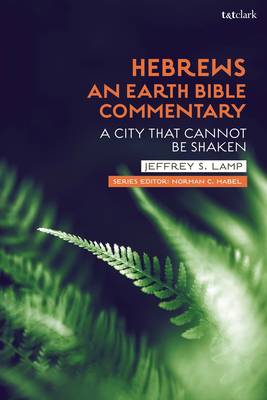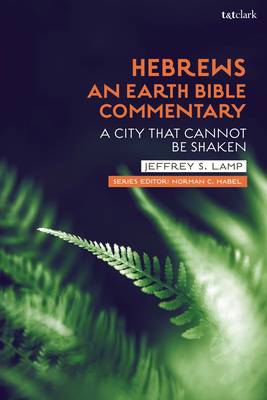
- Afhalen na 1 uur in een winkel met voorraad
- Gratis thuislevering in België vanaf € 30
- Ruim aanbod met 7 miljoen producten
- Afhalen na 1 uur in een winkel met voorraad
- Gratis thuislevering in België vanaf € 30
- Ruim aanbod met 7 miljoen producten
Omschrijving
In this new ecological commentary on the letter to the Hebrews, Jeffrey S. Lamp makes use of approaches developed in the relatively new field of Ecological Hermeneutics to shed light upon the connection of Hebrews with Earth.
Hebrews is frequently characterized as portraying a dualistic cosmology that diminishes the material world, muting the voice of Earth. Conversely, Lamp argues that though Hebrews cannot be construed as an ecological treatise, the contours of the letter's presentation may be subverted by reading from an ecological perspective, such that cues provided by the author of Hebrews serve as opportunities to hear Earth's voice in the letter. Three movements, corresponding to thematic interests of the author of Hebrews, form the framework of this ecological reading: the Son as the agent of creation, the Son depicted as the Second Adam, and the New Jerusalem as the eschatological dwelling place of God. This ecological reading of Hebrews aims to shape its readers into those who fulfill the soteriological aims of God in and for the world.
Hebrews is frequently characterized as portraying a dualistic cosmology that diminishes the material world, muting the voice of Earth. Conversely, Lamp argues that though Hebrews cannot be construed as an ecological treatise, the contours of the letter's presentation may be subverted by reading from an ecological perspective, such that cues provided by the author of Hebrews serve as opportunities to hear Earth's voice in the letter. Three movements, corresponding to thematic interests of the author of Hebrews, form the framework of this ecological reading: the Son as the agent of creation, the Son depicted as the Second Adam, and the New Jerusalem as the eschatological dwelling place of God. This ecological reading of Hebrews aims to shape its readers into those who fulfill the soteriological aims of God in and for the world.
Specificaties
Betrokkenen
- Auteur(s):
- Uitgeverij:
Inhoud
- Aantal bladzijden:
- 160
- Taal:
- Engels
- Reeks:
Eigenschappen
- Productcode (EAN):
- 9780567705211
- Verschijningsdatum:
- 27/01/2022
- Uitvoering:
- Paperback
- Formaat:
- Trade paperback (VS)
- Afmetingen:
- 156 mm x 234 mm
- Gewicht:
- 231 g

Alleen bij Standaard Boekhandel
+ 138 punten op je klantenkaart van Standaard Boekhandel
Beoordelingen
We publiceren alleen reviews die voldoen aan de voorwaarden voor reviews. Bekijk onze voorwaarden voor reviews.








